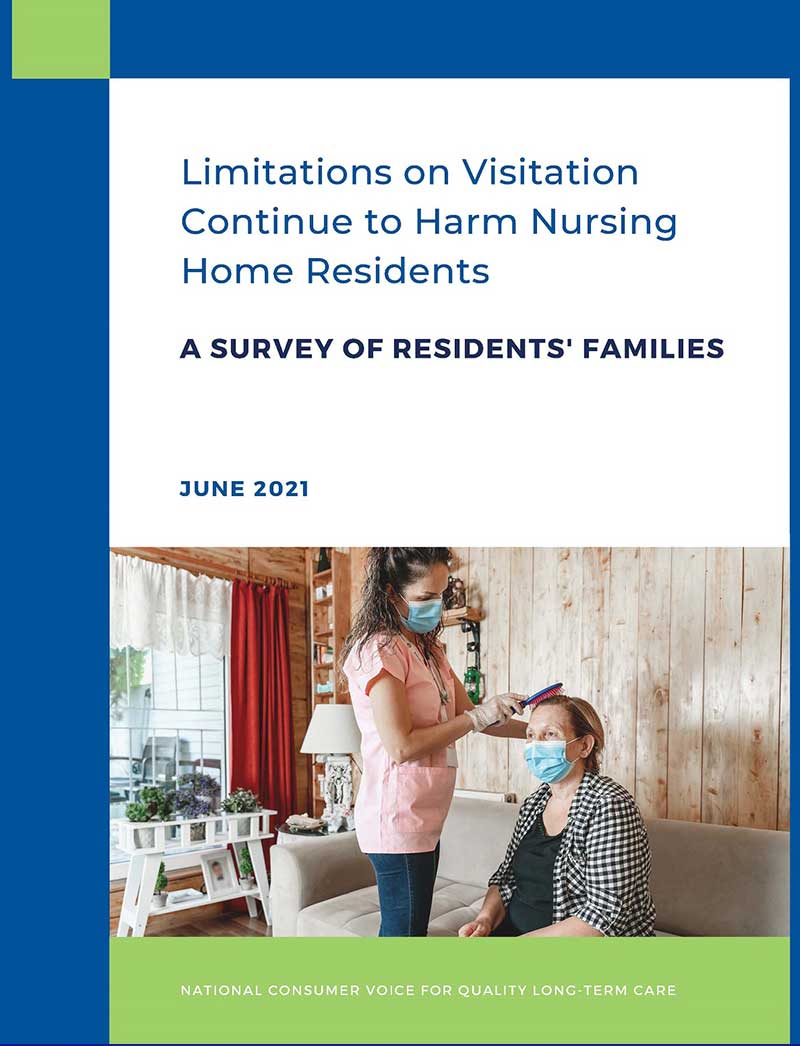Consumer Voice supports safe visitation including vaccination for all long-term care residents and visitors to long-term care facilities and adhering to the Core Principles of Infection Prevention including mask wearing.
COVID-19 in Long-Term Care Facilities
Despite the efficacy of COVID-19 vaccinations, the precipitous decline of COVID-19 cases and deaths in nursing homes, and the relaxation of some visitation restrictions, residents and families continue to face limitations on visitation and daily activities. In January 2021 and again in June 2021, Consumer Voice released reports detailing the devastating effects of limiting visitation on nursing home residents.
Consumer Voice Resources for Advocacy & Families
Spending Time with Loved Ones During the Holidays
With a little planning and preparation, residents can visit with their loved ones and stay safe during their holiday visits!
Nursing Home Visitation and Quarantine: Advocacy Strategies for Families
If you believe your loved one is being denied access to visitors and/or inappropriately quarantined, take these steps.
Reuniting Residents and Families: What to Look for and Questions to Ask as You Resume Visits in a Long-Term Care Facility
What to look for, questions to ask, and what you can do if you have concerns about your loved one’s condition
Family Advocacy for Nursing Home Residents During COVID-19
What you can do to advocate for your loved one and for all residents in your area, your state, and nationwide.
Family Councils and Advocacy During COVID-19
Family councils play an important role in fostering communication and supporting nursing home residents and staff.
Tips for Facility Visits During an Infectious Disease Outbreak
Preparing and arriving for a visit, cleaning and sanitizing during and between visits, and protecting yourself and others.
Tips for Communication While Wearing a Mask
How to show that you’re listening, and show how you are feeling, while wearing a mask.
CMS and CDC Guidance for Nursing Homes
The Centers for Medicare & Medicaid Services (CMS) and the Centers for Disease Control & Prevention (CDC) have issued and revised guidance and resources throughout the COVID-19 pandemic.





